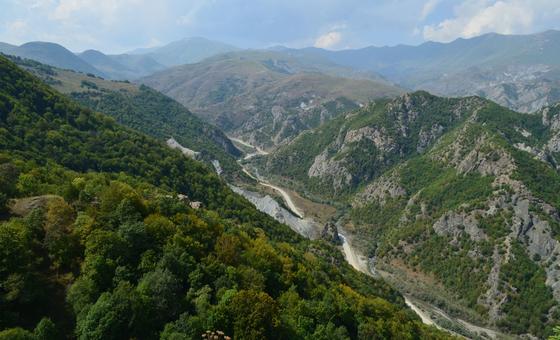Over 88,000 refugees from the Karabakh region have fled to Armenia in less than a week and humanitarian needs are surging, the UN refugee agency (UNHCR) said on Friday.
Some 65,000 have already been registered at Government-run centres where long lines have formed.
Anxiety and fear
UNHCR is supporting the refugees with core relief items, said agency representative in Armenia Kavita Belani, who’s has been on the ground since day one of the crisis:
“People are tired. This is a situation where they’ve lived under nine months of blockade. When they come in, they’re full of anxiety, they’re scared, they’re frightened and they want answers as to what’s going to happen next.”
Ms. Belani said that the most urgent needs included psychosocial support, medication and shelter for everybody, given the high volume of arrivals, as well as targeted support for the most vulnerable: the elderly and children.
The UN Children’s Fund (UNICEF) told reporters in Geneva that 30 per cent of those arriving are minors and many have been separated from their families.
UN response in full gear
UNICEF is working with the authorities to make sure that family tracing is done right away so that the youngsters can be reunited with their relatives.
UNHCR is leading the inter-agency refugee response and coordination to complement the Armenian Government’s efforts, Ms. Belani said, and an appeal for funding is being finalized.
She stressed that while the response plan was for a duration of six months, the UN was already thinking of longer-term support to help Armenia integrate the new arrivals.
Earlier this week, Alice Wairimu Nderitu, the Special Adviser on the Prevention of Genocide, reiterated her “strong concern” over the ongoing situation and called for “all efforts to be made” to ensure the protection and human rights of the ethnic Armenian population who remain in the area and of those who have left.

